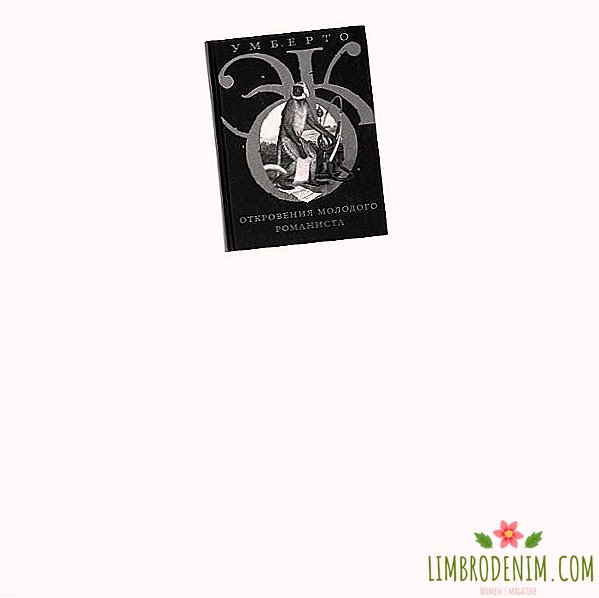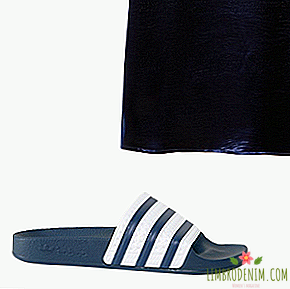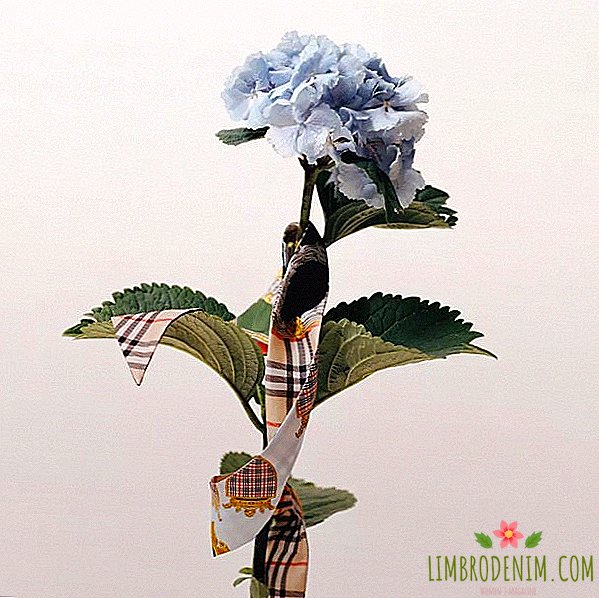Photographer Ekaterina Anokhina about favorite books
IN BACKGROUND "BOOK SHELF" we ask journalists, writers, scholars, curators, and other heroines about their literary preferences and publications, which occupy an important place in their bookcase. Today, photographer Ekaterina Anokhina shares her stories about favorite books.

 I began to read adult books quite early - clutching at everything I found in my home library. I did not have a moment of self-awareness as an adult reader: from the age of six I grew up in the company of musketeers and a headless horseman. Like many of my peers, I had an affair with Latin Americans during my teens - the great trio: Marquez, Borges, Cortazar. They woke up the fantasy, interfered with sleep and did not give rest in conversations with friends, with whom we often changed books and spent hours discussing our impressions. Now it is difficult to remember something from these books, except that it always rains in Macondo.
I began to read adult books quite early - clutching at everything I found in my home library. I did not have a moment of self-awareness as an adult reader: from the age of six I grew up in the company of musketeers and a headless horseman. Like many of my peers, I had an affair with Latin Americans during my teens - the great trio: Marquez, Borges, Cortazar. They woke up the fantasy, interfered with sleep and did not give rest in conversations with friends, with whom we often changed books and spent hours discussing our impressions. Now it is difficult to remember something from these books, except that it always rains in Macondo.
For me, in books, language and its properties have never been in the first place. Of course, I will not forget the shock of Mayakovsky’s poems at school when the uncomfortable stanzas suddenly begin to bring pleasure. But first of all in the book I rushed for history, mythology and atmospheric. Literature for me was my personal imaginary movie, which I could play in my head, a place to find answers to the questions that troubled me: how to live, how to love, what is the meaning of life, what is important and what is not.
Now, like many adults, I began to read a little for pleasure, and I had a utilitarian, not a romantic attitude to the book. It is difficult to collect and store a paper edition, and in general I treat them as a resource, and not as a source of truth. The youthful periods of drunken reading are long past, and now the book is a way to find a deeper solution to creative problems, a source of working ideas and a resource for helping oneself: it doesn't matter, psychological is help or an answer to an unresolved question on a current project. Books help to solve applied questions, whereas in adolescence or in my youth, when reading brochures on the history of religions or novels of existentialists, I would rather look for answers to the questions of being. I almost never remember what I read in detail: philosophy, feminist literature and books on art seem to digest and after a while fall out of my memory, but I know for sure that somewhere this knowledge is accumulated and affect my projects: this is how my connection with everything read.
Since I studied psycho, I still read a lot of psychological literature, including self-help books, although I rarely follow their advice. Unexpectedly, the book Marie Kondo about cleaning turned out to be useful. Universal instructions on how to disassemble the mess, helped to learn to part with unnecessary things, slowly sort out all the accumulated life in the trash, and now I try to surround myself with only what I really like. Another bestseller that turned out to be very useful is Cameron Diaz, A Book on the Body, which explains very simply and sensibly how to listen to yourself and take care of your body. This is an excellent response to the requirements of the age, which no longer allows you to get up with anything without consequences.

Fred Hyuning
"One Circle"
I learned about Fred Hüning when I studied at the Moscow School of Photography and Multimedia named after Rodchenko. My future publisher Hannes came to the workshop on how to make photo books, and showed us Fred as an inspiring example. This is a poetic diary story of falling in love with a man in a woman, pregnancy and losing a child, shot in a manner very unusual for a male photographer. A year later, in Berlin, I met the author himself: he gave me his only published trilogy diary, we had dinner together, and I was fascinated by him - this is a very modest, kind and pleasant person who worked as a policeman, from whom you absolutely do not expect such an emotional and sensual photography.
Lina sheinius
"04"
It seems that my meeting with her pictures came at a time when I decided to run into a photo from PR - I worked then in a tobacco company. I didn't really know much about photography: news, fashion, Cartier-Bresson. With Lina and the photographers like her, my passion for diary photography and the love of personal stories and pictures began, which continues to this day. I fell in love with Lina's work for their intimacy and indescribable sadness - there is no sense of distance here. I met her in a couple of years at a master class. It turned out that Lina is an incredible beauty, and also a very shy girl, although her candid photos make the opposite impression: there is a lot of Lina herself, naked body and sexuality.
Vitaly Shabelnikov
"History of psychology. Psychology of the soul"
My university teacher wrote a book about how a person's ideas about the divine are dictated by the needs of the psyche in the rationale and prediction of the world around him. He examines in detail the emergence of pagan and then world religions as a response to a change in a person’s mental needs and the growth of his knowledge about the structure of the world. This book tells, for example, how religion took upon itself the functions of law and social regulation and how it manifests itself in modern societies, where the scientific picture of the world has been replaced by a scientific one.
Henri Zhidel
"Picasso" from the series "The life of wonderful people"
The love of art of the 20th century with me since adolescence: during foreign trips, I first of all ran to museums for contemporary art, which in Russia was so hard to find. In childhood, my grandmother drove me through the expositions; in college times in her home, I stumbled upon a biography of Picasso and read avidly. The book is not dry and not boring, it is beautifully written and tells in great detail how the ideas of Picasso developed throughout his life. It seems that for the first time in my life I read that the roots of all his experiments with visuality are in the way of life, social circle, and views of the epoch. He was friends and spoke with the best philosophers of his time, whose ideas influenced his artistic experiences. It was a very important point of entry into the art of the XX century, which helped to understand the connection with the context and time in which it was created.
Arkady and Boris Strugatsky
"The city is doomed"
Unlike many of the books that you read, simply because it reads, “Doomed City” I read as an adult a couple of years ago. I am not very familiar with science fiction, but I swallowed a lot of dystopias in high school. Our literature teacher was obsessed with reading as much as possible about the dangers of totalitarianism: I studied in the years of perestroika and many teachers were happy to have the opportunity to talk, think openly, and give books to children that go beyond the program.
For me, the Strugatskys are an opportunity to talk about very serious things in an unrealistic form. This is a literature on reality in distortions and metaphors, which at the same time never ceases to be a reality. I am very impressed with the idea that a person always lacks what he already has, and even a change of systems does not give people what they are looking for. "The city is doomed" primarily about the restlessness as an integral part of human nature.
Betty Friedan
"The Mystery of Femininity"
I used to think that the experiences and conflicts between my desires and how I “should” behave and feel is my personal peculiarity, but after this book I realized myself as part of a large and insufficiently articulated problem. When you try to be a "good girl", you cannot truly take risks and protect your interests. When I began to practice art, these problems arose really sharply: I was always enraged that my questions about the problems of self-realization were given by many foolish answers in the spirit of “give birth” or “get married”. The Fridan book is about a huge reservoir of imposed stereotypes about women's purpose and the conflict of roles. Since it began my journey to feminism, which I, like many, have long thought that this movement is for the right not to shave my legs.
Irwin Yalom
"Liar on the couch"
Irvin Yalom practiced existential therapy. He shares cases from medical practice in an easy and relaxed form, which is rare for a psychotherapist. This is a great literature "for dummies": there is no need to wade through terminology or be afraid of your own ignorance. With the books of Yalom, I experienced love dramas at the age of twenty. This is an important book about relationships with oneself and other people, about the dynamics between the doctor and the therapist, about frankness, which is easy to read, like a detective story or an adventure story.
Every time Yalom helped me to reflect and analyze my own shortcomings and problems in a relationship. He also writes in a very heartfelt way about the experience of loss and how we let go of past relationships - I can only confirm his theory that we take leave of our partners with much more difficulty than with those with whom everything was fine. What is important - in his books there are no italicized tips on how to act in life, so characteristic of self-help books.
Victor Frankl
"Man in search of meaning"
Reading this book, I washed my tears. Victor Frankl is fixed first of all on the meaning of life and on how a clear inner mission helps a person not to break from the trials of life. Everyone knows the story of Victor Frankl, a prisoner of concentration camps, and his book is not just a guide, but also the result of a unique and painful personal experience of survival. You read about inhuman sufferings and how in the same conditions someone was a man, and someone could not. He writes about the role of chance in his salvation, about the essence of human dignity, about the people he met, and how he helped other prisoners. The nightmare he experienced gave Frankl the opportunity to understand something new about the person and the structure of his psyche, and in his further work he emphasized the importance of understanding the meaning of life for finding happiness.
Victor Pelevin
"Chapaev and Emptiness"
This is one of the favorite books of teenagers - at a certain age, everyone loves books about comprehending the world that an entire generation is infected with. I made a photo book called "Inner Mongolia", largely with an eye on "Chapaev and the Void", which refers to such Inner Mongolia, which is not a country, but something inside you. It is described as an imaginary space and inner desert. It was from Pelevin that I took the epigraph for my book.
Hans Ulrich Obrist
"A Brief History of New Music"
I do not really understand the music, which is discussed in this book, but I love her not for that. This story is not so much about music, as the conversation of thinking people about art, about how the artist lives and thinks - it is very similar to my attempts to reflect the experience of the artist’s life. I took Obrist's interviews with modern composers on the sea with me and could not tear myself away from them. For me, the book has become a history of the artist's paths, search and reflection on his hobby. Almost all the heroes of Obrist know each other, follow each other and do not create in a vacuum. This is a book about the thinking and life of a creative person, which is interesting to read, doing art in a different environment and working with another medium.




